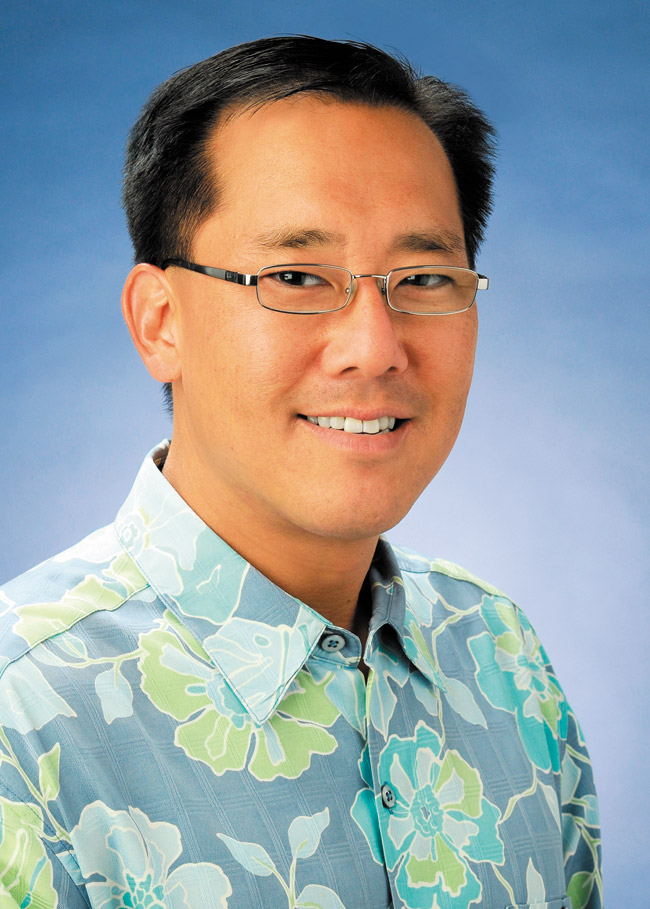Football’s State Playoff Pioneer
With the state high school football championships coming to an exciting conclusion this Saturday, I got in touch with the man most instrumental in making this successful franchise come alive. Keith Amemiya, the former Hawaii High School Athletic Association executive director, is now a member of the state Board of Education and the senior vice-president of Island Holdings Inc.
Yes, he says he “misses” the day-to-day excitement of the sports world, but all he has to do is look at one of the pictures on his desk to know why he’s glad he’s moved on.
“My son, Chris, is a football, basketball and baseball player in the eighth grade at Punahou, and I didn’t want to miss watching him play,” Amemiya says.
Young Chris was born in Amemiya’s second year of his 11-year reign over the HHSAA. In Amemiya’s first year, he began the process to start the HHSAA State Football Championships, which are now in their 15th very successful season.
That success was not guaranteed, and Amemiya knows just how stressful it was to make it happen.
“We had the Prep Bowl, but people were saying that’s just an Oahu championship. For years, the Neighbor Islands and the general public clamored for an official state championship,” he recalls. “I remember thinking every other state had a football championship (even states with tremendous geographic challenges), so why can’t we? We’re a high-school-football-crazy state.”
One of the biggest hurdles was the cost. Another was logistics. “You had less than one week’s notice to make travel arrangements,” he said. “You had to find hotel rooms. And you had to play this out at multiple locations over multiple weekends.”
The proposed formats were an issue, too.
“In Hawaii, as you know, you have to be both patient and persistent. It took over a year to get everyone in the leagues to agree,” he says.
Amemiya says that eventual cooperation from the five leagues, as well as key sponsors coming aboard, were huge factors in making the new concept work. “I have to give the credit to people like First Hawaiian Bank, Chevron and Hawaiian Airlines,” he says.
It was a demanding time. I recall seeing Amemiya on the sidelines at Aloha Stadium on championship weekend one of those first couple of years. I told him he looked exhausted. “I was exhausted,” he says with a smile now. “There was so much stress because of the concern of whether it would work out in the end.”
It did work out, and Amemiya’s persistence was the driving force.
“It felt so rewarding to see it so successful. I think what generated some of the early excitement was when Kahuku finally won a championship,” he says of the second year (2000) when the Red Raiders broke the stranglehold on titles that Saint Louis had held onto for so long (including winning the first state title in 1999). “Then, when we tried Division II and there were so many critics saying it wouldn’t work, we saw Damien make the title game.”
Damien lost to Aiea in that first DII title game (in 2003), but the successful championship stage at all levels had been set.
“All of it was worth the blood, sweat and tears,” Amemiya says.
Now, he can sit back in the stands, with his football-playing son, his wife, friends and family, and enjoy the fruits of his great labor.
“The payoff,” he says, “is great.”






